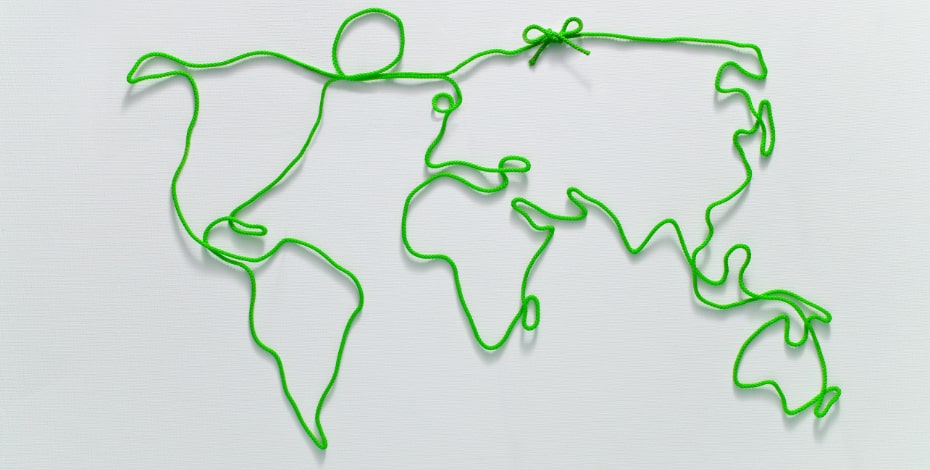
Quests for knowledge put on hold...for now

The Winston Churchill Memorial Trust provides about 100 Australians each year the opportunity to travel overseas in search of new ideas, innovation and excellence in order to benefit the Australian community. However, four APA members awarded Churchill Fellowships in 2020 have had their international excursions to further their knowledge temporarily curtailed due to COVID-19.
Philip Ladlow (Tasmania)
To explore pioneering technology promoting neuroplasticity in people with brain injury and disease
More than 700,000 Australian’s live with neurological injury and disease, and Philip Ladlow is keen to investigate best practice access and service affordability around the use of technology-assisted neurorehabilitation exercise to stimulate motor-relearning and optimise recovery.
With the support of the Churchill Trust, Philip will visit hospitals in the US, Belgium, Switzerland and Canada to study the international development of neurorehabilitation.
He will explore potential sourcing of biotechnological devices, including the portable neuromodulation stimulator that is only authorised for clinical use in Canada.
His project is investigating treatment for a condition the trust founder, Winston Churchill, suffered and coped with throughout his life.
‘Churchill was familiar with neurological disease, having suffered and survived multiple strokes. His final stroke in 1965 at the age of 90 closed the chapter on a remarkable life.
'Today, neurological disorders continue to represent some of Australia’s most complex health challenges, with physical and mental impacts creating significant burden of disease.’
Philip lectures in neuroscience at the University of Tasmania and has worked in acute and rehabilitation hospital settings in Melbourne and Hobart, as well as providing rehabilitation physiotherapy services in the private practice sector since 2000.
Movement-based therapy, such as Pilates, is integral to his recovery programs for patients with neurological conditions, persistent pain, vestibular balance disorders and general deconditioning.
‘I have a passion for education and using movement-based therapy as a means of engaging, motivating and empowering clients in optimising their health and function and achieving their goals.’
Philip estimates neurological disease and injury costs the Australian community more than $27 billion annually.
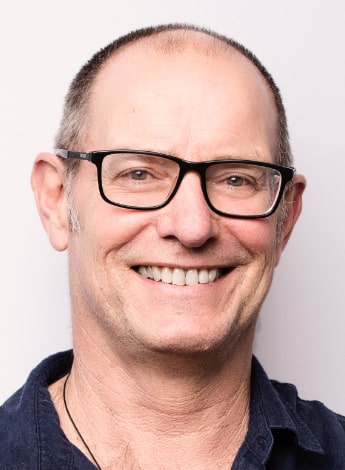
The cost is driven largely by a lack of intensive exercise programs to promote neuroplasticity and recovery; lack of access to ongoing exercise programs post-diagnosis and discharge from hospital, and lack of financial support to access specialised exercise intervention.
He wants to make treatment more accessible and affordable for patients.
‘Neurological disease and injury places significant impact on an individual’s quality of life, and on our society.
'If we can gain a better understanding of the costs and practicalities of making biotechnology more accessible to neurological patients here, we can then understand the potential challenges of implementing programs, which could improve quality of care while reducing the cost impact considerably.’
He wants to establish a model of care in his home state of Tasmania that could potentially be expanded to other states, providing ‘significant benefits for individuals, their family, community, and Australian society as a whole’.
Knowledge gained will be shared through professional networks and liaison with the Australian Institute of Neuro- Rehabilitation and relevant medical specialists.
‘The national statistics for people living with disability in Australia is 18 per cent. Whereas, in Tasmania, unfortunately, we’re punching above our weight at 26 per cent.
'Similarly, with the ageing population: the national average is just a shade under 16 per cent and here it is over 19 per cent.
'So, we not only have an older population, but one with more disability and a lot of socioeconomic disadvantage as well.
'Any information I can discover and bring to Australia has the potential to help our health system and patients immensely.’
Although unable to travel at present (plans are for late 2022), receiving a Fellowship has provided connections with Trust alumni based in Tasmania.
‘People have been reaching out, and it’s been an incredibly supportive and inclusive network. COVID has given me that extra time to connect with leaders overseas.
'We will meet face-to-face eventually, but it’s been beneficial to have some questions answered before we move into the observational learning at hospitals and clinics.’
Belinda Luther (Victoria)
The Dr Dorothea Sandars and Irene Lee Churchill Fellowship to investigate and implement best practice physiotherapy in Australian paediatric palliative care
Inspired through her work with Very Special Kids, Belinda Luther successfully applied for a Churchill Fellowship to investigate and implement best practice physiotherapy in Australian paediatric palliative care.
The physiotherapist’s experience and understanding of children with complex disabilities and their families spans more than 25 years.
After starting in paediatrics in 1994 at The Royal Children’s Hospital and then working for 14 years in a paediatric private practice, Belinda joined Australia’s first paediatric hospice, Very Special Kids, in 2017.
In signing Belinda, the hospice was the first in Australia to employ a physiotherapist.
Today, there are three paediatric hospices in the country, and Belinda’s goal is for all children who require palliative care in Australia to receive physiotherapy support, which is in line with international best practice.
She anticipates her study tour to children’s hospices in the UK and Ireland will be for up to eight weeks.
‘Paediatric hospices are relatively new in Australia with the first at Very Special Kids opening in 1996, whereas in the UK the first hospice opened in 1982 and there are over 50 paediatric hospices, most with several physiotherapists on staff.
Physiotherapists have only recently been employed in the other Australian paediatric hospices—Hummingbird House in Brisbane and Bear Cottage in Sydney—on a part-time basis.
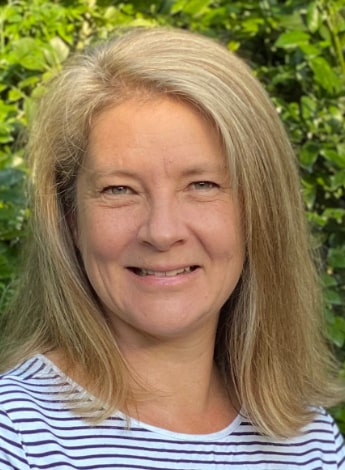
'So when you compare that to the depth of experience and expertise that’s available in the UK, we’ve got a lot to expand on here,’ she says.
‘There’s no published literature on the role of physiotherapy in paediatric palliative care as yet, so I need to travel, meet with and learn directly from the expert physiotherapists who are leading in this area, and understand what’s best practice so that we can provide the same level of care for the children in Australia.’
With travel restrictions delaying her ability to visit hospices and meet international peers in person, Belinda is using technology to initiate professional connections.
Through online meetings, she is already gaining good insights from physiotherapists who have extensive experience and knowledge in her area of practice.
‘I love what I do, but I do feel quite isolated. I want to learn from the experts in the UK and Ireland, so I can then improve and expand on what I can do, and share this knowledge and expertise throughout the palliative care and physiotherapy communities in Australia.’
The information is already proving invaluable in the planning of Very Special Kids’ new children’s hospice that is expected to be completed by 2023.
Children who access the services have a life-limiting component to their diagnosis, and Belinda wants to ensure the highest level of internationally led best practice care can be delivered at the new hospice.
The new hospice will include a hydrotherapy pool that will enable aquatic physiotherapy to be incorporated in service provision, as well as improved therapy spaces to promote physical activity and development.
‘Through my clinical work, I understand the benefits of providing aquatic and land-based physiotherapy; the Fellowship will enable me to see and understand first-hand how physiotherapists in the UK and Ireland provide this in a paediatric hospice setting.
‘I’m hopeful and optimistic that I will be able to travel at some stage next year, which would be a perfect opportunity before we open the beautiful new facility at Very Special Kids.’
Nicholas Marshall (Queensland)
The Rodney Warmington Churchill Fellowship to improve community inclusion and reduce social isolation using activity in people with special needs
Growing up on the east coast of Australia, surf and community were integral to Nick Marshall’s life. Going to university and now practising as a physiotherapist at Surf Life Physio, they remain part of his daily life.
Six years ago the APA Sports Physiotherapist and APA Musculoskeletal Physiotherapist started a charity that is based on the Gold Coast called the Albatross Nippers, Australia’s first inclusive program of surf lifesaving.
It helps children with special needs experience coastal activities with other children of similar ages.
‘Creating the program was a way of really just getting families and children with special needs into the water and be able to enjoy what others can do on an everyday basis.
'It came about because surf lifesaving has a whole bunch of rules and regulations that just made that difficult.
'So there were basically no people with disabilities in surf lifesaving,’ he says.
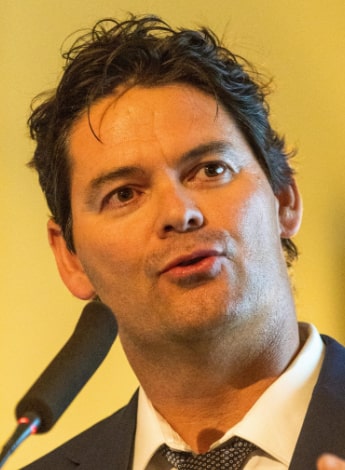
‘As a Nipper coach, I was finding that if a family ever had special needs or disability they moved away from surf lifesaving. These families were then becoming a little bit socially isolated from their local community, and the community suffered because of that.’
As a Churchill Fellow, Nick wants to continue improving community inclusion and reduce social insolation by using activity for people with special needs. He is focused on his local Gold Coast beach with a view to visit the US to expand his international knowledge.
‘My project is about tackling community inclusion and reducing the social isolation. I’m framing that in two parts—one is improving the physical access to the water, and then promoting the program.
'The US has programs in place, such as a buddy system, to ensure people remain included and it is a way of life.
'I want to learn more about that and bring that knowledge and experience back here to inform others, so we can implement a program where individuals, and their families, remain or become included in our surf activities, such as the Albatross Nippers.’
Last year, Nick was named Queensland Australian of the Year for initiating the surf lifesaving program. The accolade is a welcome boost to delivering on his Churchill Fellowship project.
While travel to the US is not yet possible, the Churchill Fellowship has already opened up networking opportunities that have led to an early idea of laying foam matting on sand to provide people in wheelchairs with access to beaches.
‘An occupational therapist in the US has provided me with a supplier to beach matting that can clip together and be laid on the sand to give access— it’s one clip and a simple process and a person can be on the beach and in the water.
'With the Fellowship, we have been able to progress that and give more opportunities to people to become completely independent,’ he says.
‘Progressing the project post the Trust is dependent on funding, but at least I know how to get the equipment, which is a start.
'My ultimate goal is to ensure everyone is included and has the same access as the person next to them; that is what I want to achieve and I am optimistic that this project will help support that.’
Dr Selina Parry (Victoria)
To implement a rehabilitation pathway for Australians who have survived an intensive care admission
Australians have a 50 per cent chance of being admitted to an intensive care unit (ICU) in their lifetime.
More than 90 per cent will survive the initial life- threatening illness. However, survivorship comes at a significant cost, with patients continuing to suffer after hospital discharge with significant impairments, known as post-intensive care syndrome, in their physical ability, memory and mental health.
Dr Selina Parry’s Churchill Fellowship will support a study tour to the US, UK, Canada and the Netherlands to investigate care pathways for patients who have survived an ICU admission.
‘Because of all the advances in medical technology and care, almost 90 per cent of patients who have been in intensive care will survive. But the challenge is that of surviving.
‘In Australia, we have no dedicated pathways or rehabilitation packages to support these patients after they leave hospital.
'This is in stark contrast to other conditions, such as stroke or respiratory disease. I want to gather information to assist with the development and implementation of a rehabilitation program for ICU survivors.
‘With support from the Fellowship, I’ll be connecting with international experts to learn about how they’re trying to address and support the patient after their time in hospital.’
Selina is the cardiorespiratory lead (senior lecturer) and Sir Randal Heymanson/Dame Kate Campbell Fellow within the University of Melbourne’s Department of Physiotherapy.
Her primary research interests include evaluation of longer term outcomes of critically ill survivors, the use of novel technologies such as ultrasonography to evaluate muscle wasting, and rehabilitation interventions for people with critical illness.
Post-intensive care syndrome is becoming increasingly recognised, she says, and reflects the long-term problems—physical, cognitive and mental health—that can develop as a result of being very unwell in intensive care.
The COVID-19 pandemic has shone a light on intensive care in the past year, she says, as demand for ICU beds soared following a rapid increase in coronavirus infections globally.
While the virus has killed millions of people worldwide, there are those who have survived following medical intervention.
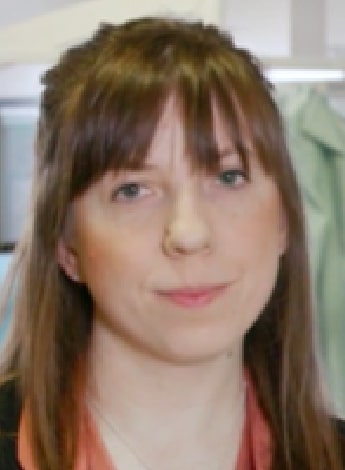
This has led to medical professionals in the UK establishing rehabilitation programs to support survivors.
Interestingly, in the US, even before the pandemic, former ICU patients had access to follow-up clinics where clinicians continued to track their recovery and recommend support services, as needed.
Reviewing parallel programs such as this, Selina says, could provide insights that are transferable to looking after ICU patients.
‘COVID-19 is just one group of patients that goes through intensive care. There are more established pathways of care for cancer or chronic disease patient groups, as provided in the follow-up clinics in the US.
'I’m keen to see what they are doing and bring back the international perspective to Australia so we can support patients in getting back to doing the things that they want to do.’
When Selina does get to travel, the Fellowship investigation will build on her work in providing rehabilitation interventions.
Active within the APA since her student days, the past national chair of the APA Cardiorespiratory Group, and current member of the Australian College of Physiotherapists, completed her PhD in 2015 in the area of critical care rehabilitation and recovery.
Selina is currently analysing data from her post- doctorate studies into the 12-month outcomes of patients who have been in intensive care.
‘It’s been instrumental in guiding me into this next phase of research to co-design a pathway of care to support patients, not just in the hospital, but post-hospital and getting back into their community.’
© Copyright 2024 by Australian Physiotherapy Association. All rights reserved.





